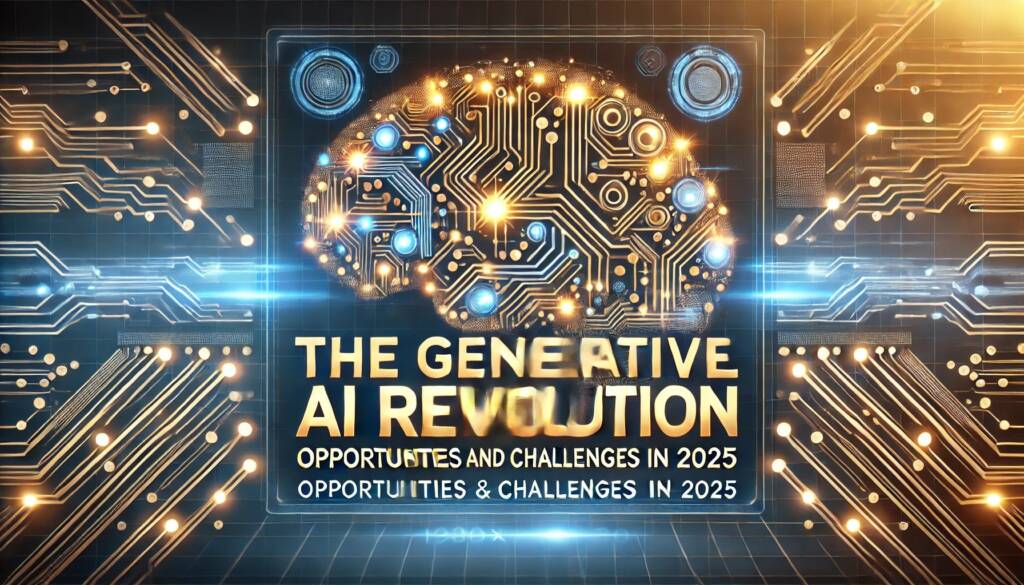
Generative Artificial Intelligence (AI) has captured global attention due to its ability to produce text, images, and even videos that mimic human creativity. This groundbreaking technology is reshaping industries such as marketing, education, and entertainment. However, along with its immense potential, generative AI also brings significant challenges, including ethical concerns, data bias, and misuse.
What is Generative AI?
Generative AI refers to a branch of artificial intelligence that can create new data based on existing patterns. Examples include ChatGPT for text generation, DALL-E for image creation, and Synthesia for video production. This technology relies on deep learning algorithms and neural networks to analyze input data and generate relevant outputs.
Applications of Generative AI Across Industries
- Marketing and Advertising
Generative AI automates content creation for ads, social media, and email campaigns, allowing businesses to generate personalized and engaging content in seconds.
- Education
AI enhances interactive learning experiences by producing educational videos, quizzes, and automated assessments, enabling teachers to focus on student engagement.
- Entertainment
From scriptwriting to music composition, generative AI accelerates the creative process, enabling artists and creators to push boundaries.
- Healthcare
Generative AI supports doctors by predicting diseases, creating 3D organ models, and customizing treatment plans based on patient data.
Advantages of Generative AI
- Efficiency
Generative AI reduces the time and cost of manual content creation, boosting productivity across sectors.
- Personalization
AI enables the delivery of tailored experiences, such as personalized streaming recommendations and targeted advertising.
- Innovation
Generative AI fosters creativity, opening doors to new possibilities previously unimaginable.
Challenges and Risks
- Plagiarism and Copyright Issues
AI outputs often resemble existing works, raising concerns about intellectual property rights.
- Data Bias
Biased training data can lead to unfair or inaccurate AI outputs, perpetuating stereotypes.
- Misuse of Technology
AI-generated content can be used maliciously, such as creating deepfakes or spreading misinformation.
- Impact on Employment
Automation through AI may displace human jobs, particularly in repetitive and creative roles.
Generative AI holds the promise of a more efficient and innovative future. However, to harness its potential responsibly, clear regulations, ethical guidelines, and awareness are essential.


